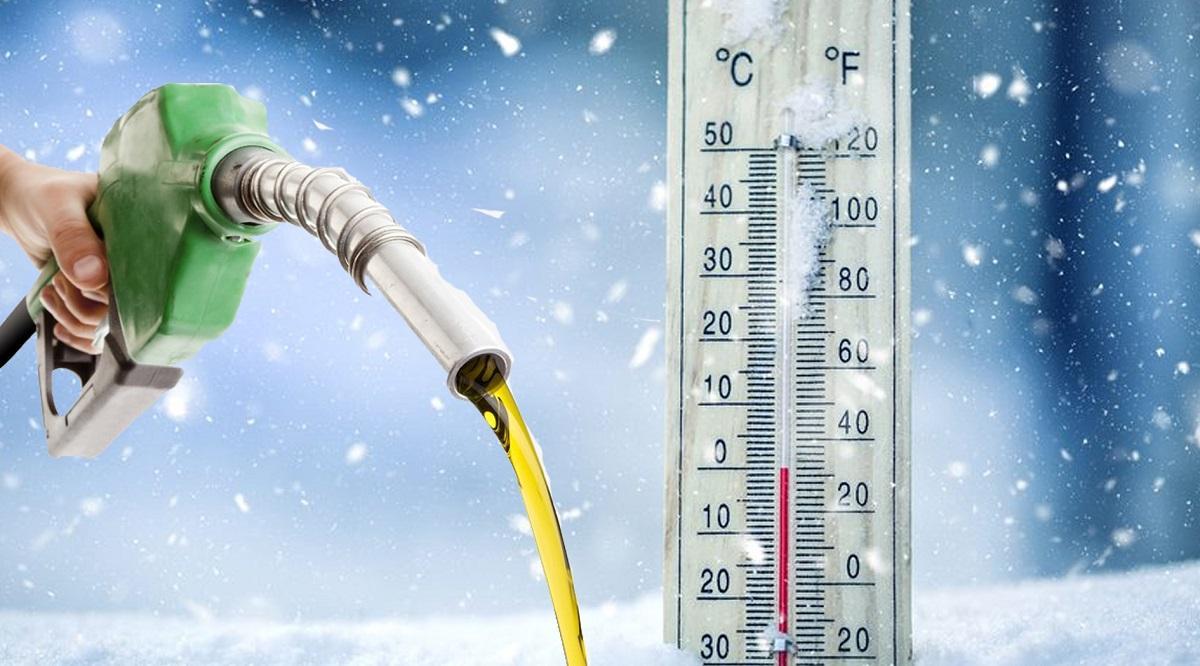
Fuel against frost
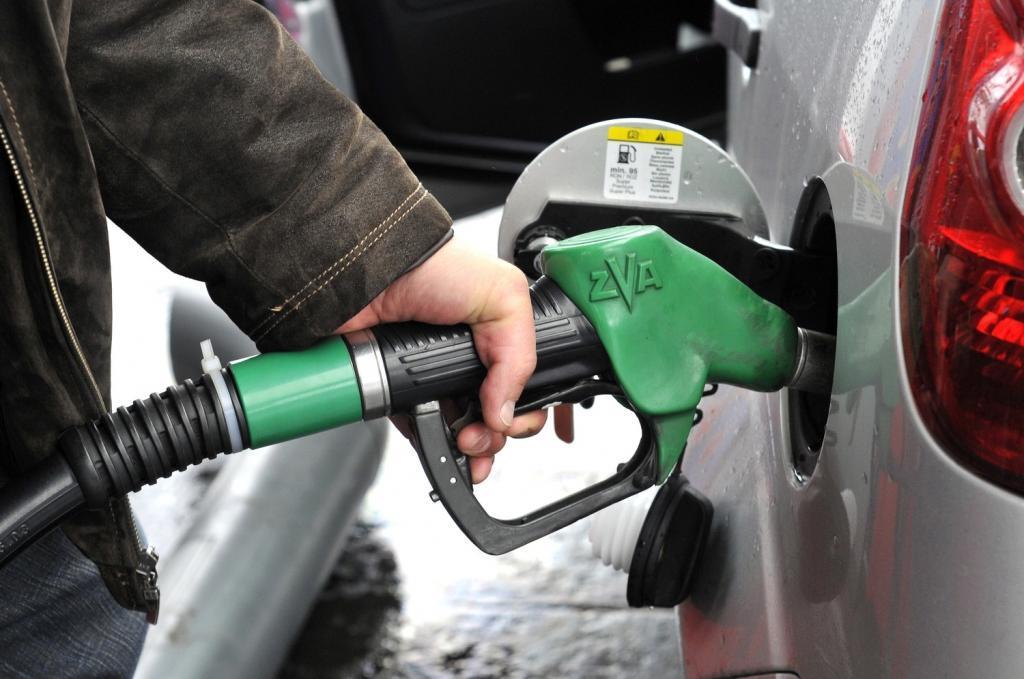 In our climate zone, winter can come overnight. Very low temperatures can effectively immobilize any vehicle, for example by freezing fuel. To avoid this, it is enough to arm yourself with the appropriate additives, which, when mixed with fuel, create a truly frost-resistant mixture.
In our climate zone, winter can come overnight. Very low temperatures can effectively immobilize any vehicle, for example by freezing fuel. To avoid this, it is enough to arm yourself with the appropriate additives, which, when mixed with fuel, create a truly frost-resistant mixture.
Diesel problems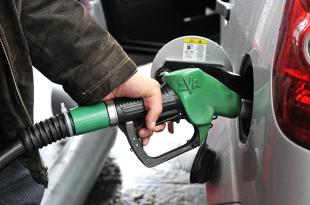
Despite the rise in price of diesel fuel, cars with diesel engines are still very popular in our country. However, you should be aware that the low fuel consumption of these engines is due to more advanced technology than typical "petrol engines". Advanced technology requires proper care. Diesel owners should be especially careful in winter. Firstly, because of the "freezing of the fuel", and secondly, because of the glow plugs.
The dependence of starting a car in winter on the quality of glow plugs is a problem arising from the very design of a diesel engine. This is because only air enters the cylinders, forcing it. Fuel is injected directly above the piston or into a special starting chamber. The elements through which the fuel passes must additionally heat up, and this is the task of glow plugs. The ignition here is not initiated by an electric spark, but occurs spontaneously as a result of high pressure and temperature above the piston. Broken spark plugs will not properly heat the combustion chamber in cold weather, when the entire engine block is cooled much more than it would normally be.
The aforementioned "fuel freeze" is the crystallization of paraffin in diesel fuel. It looks like flakes or tiny crystals that enter the fuel filter, clogging it, blocking the flow of diesel fuel into the combustion chamber.
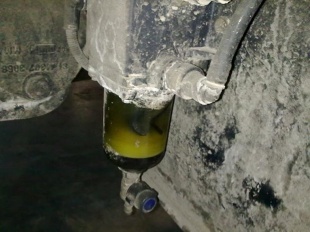 There are two types of fuel for diesel fuel: summer and winter. It is the gas station that decides which diesel goes into the tank, and drivers don't have to figure it out because the spent fuel comes out of the pumps at the right time. In summer, oil can freeze at 0oC. Transitional oil found at stations from October 1 to November 15 freezes at -10°C, and winter oil in distributors from November 16 to March 1, properly enriched, freezes below -20°C (group F winter oil) and even -32°C (Arctic Class 2 Diesel). However, it may happen that some warm fuel remains in the tank, which will clog the filter.
There are two types of fuel for diesel fuel: summer and winter. It is the gas station that decides which diesel goes into the tank, and drivers don't have to figure it out because the spent fuel comes out of the pumps at the right time. In summer, oil can freeze at 0oC. Transitional oil found at stations from October 1 to November 15 freezes at -10°C, and winter oil in distributors from November 16 to March 1, properly enriched, freezes below -20°C (group F winter oil) and even -32°C (Arctic Class 2 Diesel). However, it may happen that some warm fuel remains in the tank, which will clog the filter.
How to behave in such a situation? Wait for the fuel in the tank to thaw on its own. It is best then to drive the car into a heated garage. Gasoline cannot be added to diesel fuel. Older diesel engine designs could handle this mixture, but in modern engines it can lead to a very costly failure of the injection system.
Gasoline frost resistance
Low temperatures do not only harm the fuel in diesel engines. Gasoline, although more resistant to frost than diesel, can also capitulate to low temperatures. Frozen water in the fuel is to blame. Problems can 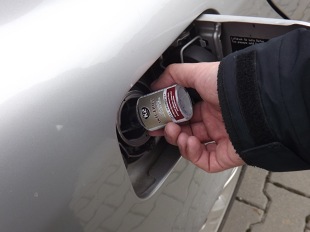 appear even at slight temperature fluctuations. It should be remembered that thermometer readings can be deceiving, since the temperature near the ground is even lower.
appear even at slight temperature fluctuations. It should be remembered that thermometer readings can be deceiving, since the temperature near the ground is even lower.
The place where the fuel freezes is often hard to find. A proven, albeit long-lasting, way is to put the car in a heated garage. Unfortunately, this defrosting takes much longer. Much better is the use of water-binding fuel additives. It is also worth refueling at reputable gas stations, where the chance of encountering low-quality fuel is lower.
Prevent, not cure
It is easy to effectively deal with the consequences of freezing. Fuel additives poured into the tank when refueling will reduce the risk of serious damage.
Diesel engines must be treated with an anti-paraffin additive before refuelling. The fuel filter is not clogged. An additional benefit is that the nozzles remain clean and system components are protected from corrosion. A product such as DFA-39 produced by K2 increases the cetane number of diesel fuel, which helps to reduce diesel engine losses in winter.
It is recommended to pour K2 Anti Frost into the tank just before refueling. It binds water at the bottom of the tank, thawing the fuel and preventing it from freezing again. Also, do not forget to drive with the most full tank in winter, this procedure not only protects against corrosion, but also makes it easier to start the engine. When gasoline is cold, it does not evaporate well. This makes it difficult to ignite the mixture in the cylinder, especially when it is of lower quality.
Investing about a dozen zloty in fuel additives in winter is a really good idea. In addition to saving time, the driver will avoid additional stress associated, for example, with commuting. There is also no need to look for patents for quick defrosting of fuel, which can be costly. It is better to spend a cold winter morning in a warm car than in a crowded bus or tram.
